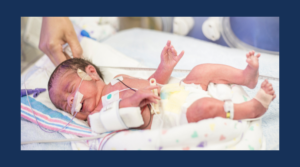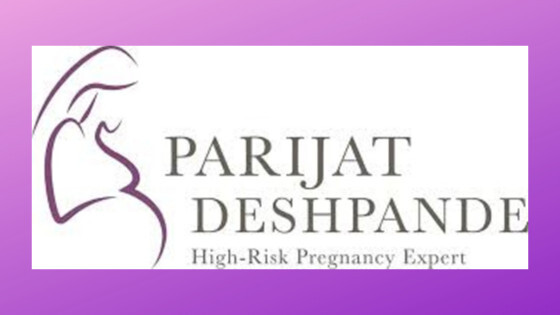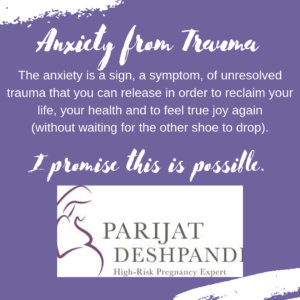Experiencing the Neonatal Intensive Care Unit (NICU)
Having a child in the Neonatal Intensive Care Unit (NICU) can be scary for many parents. Seeing your child hooked up to monitors, IVs and leads, not knowing what is going to happen to your baby or how you can help, is a terrifying experience.  Most NICU parents dream of the day that they can break out of the hospital, take their baby home, and finally be a family all under the same roof. As a mother whose son was in the NICU for 109 days, I can tell you that homecoming day was even more incredible than I had imagined it to be!
Most NICU parents dream of the day that they can break out of the hospital, take their baby home, and finally be a family all under the same roof. As a mother whose son was in the NICU for 109 days, I can tell you that homecoming day was even more incredible than I had imagined it to be!
Home after the NICU
At the same time, being at home with your NICU grad has its challenges, as well. Continued medical care, managing monitors, oxygen or tube feedings can make the transition from hospital to home feel more of a continuation of the same, as you spend much of your time with medical professionals and specialists for post-discharge appointments. Keeping up with medical care on top of normal newborn care, compounded with the days, weeks or months you were already in the NICU, can be overwhelmingly exhausting.
 The part I see parents (especially mothers) struggle with the most after discharge is anxiety. There’s a sense of waiting for the other shoe to drop, not fully trusting that everyone or everything is ok, bracing yourself for bad news. There’s a mistrust of care providers and fear about letting trusted family members watch the baby, even for mom to take a quick shower. One of the most common experiences I hear from my clients is shooting up awake in the middle of the night, running to the bassinet and making sure baby is still breathing. It’s an experience of constant awareness, watchfulness and protectiveness, making it feel impossible to fully rest, even if you have help at home.
The part I see parents (especially mothers) struggle with the most after discharge is anxiety. There’s a sense of waiting for the other shoe to drop, not fully trusting that everyone or everything is ok, bracing yourself for bad news. There’s a mistrust of care providers and fear about letting trusted family members watch the baby, even for mom to take a quick shower. One of the most common experiences I hear from my clients is shooting up awake in the middle of the night, running to the bassinet and making sure baby is still breathing. It’s an experience of constant awareness, watchfulness and protectiveness, making it feel impossible to fully rest, even if you have help at home.
This takes a tremendous toll on your body.
What’s worse is, parents feel like they begin to lose support for their worries. “He’s home now,” family members say. “It’s in the past now, let it go!” friends chime in. “Be grateful she’s fine!”
These comments are intended to be supportive but instead alienate the parents who cannot just “let go”. The grips of anxiety feel so strong, the worries and fears so real, that instead of feeling supported, they feel judged, when in fact their experiences make perfect sense.
When a child’s life is threatened at any level, a parent’s job – and biological reaction – is to go into protective mode.
That is what happened in the NICU. Hypervigilance, alertness, anxiety all played a protective role in the NICU. Once home, those feelings don’t automatically disappear. The anxiety is not a sign that you’re broken, ungrateful or unable to “move on”. Instead, this anxiety is most often a symptom of a trauma response that was activated in the NICU and as such needs to be addressed from a trauma perspective.
Here are 3 steps I guide my clients through to release trauma after baby has come home from the NICU:
- How does my anxiety make sense? Too often you’re hearing a message from people around you to “get over it” because “everything is fine now”. However, trauma symptoms exist for a very good reason. To keep you (and in this case your baby) safe. How did this anxiety serve you in the NICU? For example, many of my clients realize that it was due to their hypervigilance that they caught issues in their baby’s medical care quickly. Parents who are otherwise non-confrontational learned how to advocate for their baby’s care by attending rounds and questioning medical decisions. Get clear on this first because this self-compassion will be a rock for you as you do the work to release trauma.
- Restore body safety. At the core of a trauma response is the very basic fact that we don’t feel safe – in our environment or in our bodies. Without body safety, all anxiety or trauma management tools will function as building the frame of a house that has no foundation. The house will remain standing until the wind blows and knocks it down again. Restoring body safety is about building the foundation first so that the house can withstand whatever storm my lie ahead. You might have already noticed this. As you’re trying anxiety management tools, feeling relief for hours or even a couple of days. But as a doctor’s appointment approaches or your little one begins to sniffle, everything falls apart and it’s like you’re back to square one. This is a sign that you need to focus on feeling safe in your body again. To do this begins with increasing body awareness, becoming reconnected with your body, noticing external and internal sensations and learning how to read your body’s signals again so you can give your body what it needs.
- Discharging energy. Another way to think of unresolved trauma is trapped energy. During a time when your baby’s life was threatened, your body wanted to fight or run so it geared you up to do just that, sending blood from your digestive organs to your arms and legs. However, because there is no enemy to fight and there is no place to run when your baby is the NICU, the energy your body stored up remains stuck in your body. This is why you might have noticed constant tightness in your neck and shoulders, consistent, dull stomach or headache, or achiness in your back or legs for example. Trauma resolution is about discharging that energy so it’s no longer locked up in your body, keeping you in the fight or flight state. There many ways to discharge this energy. Trauma-informed dance, movement or yoga therapy are all some great examples of how to discharge this energy effectively to release trauma from the body.
The anxiety you feel after bringing baby home is not a sign of brokenness, you living in the past, unable to let go. This is not your new normal.
If you’d like support and guidance to do this, join me and women around the world in my Healing Hearts program to heal after bringing baby home from the NICU. [LINK: http://bit.ly/healheartati]
Parijat Deshpande is the leading high-risk pregnancy expert, mind-body health specialist, trauma professional, speaker and author who teaches women how to deactivate their stress response before, during and after a high-risk pregnancy so they can give their baby a strong start to life. Her unique approach has served hundreds of women to manage pregnancy complications and reclaim a safety and trust in their bodies that they thought was eroded forever. Parijat is the author of bestselling book Pregnancy Brain: A Mind-Body Approach to Stress Management During a High-Risk Pregnancy. She is also the host of the popular podcast Delivering Miracles®, that discusses the real, raw side of family-building including infertility, loss, high-risk pregnancy, bed rest, prematurity and healing once baby comes home.
Learn more about Parijat Deshpande and her work at www.parijatdeshpande.com.





